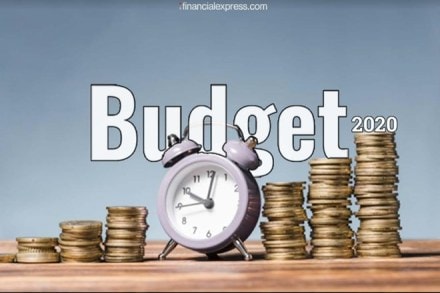By Praveshh Gaur
Union Budget 2020 India: On 1 Feb 2020, the Honourable Finance Minister will table the annual budget for 2020-21. Everyone, from the industry to the common man is eagerly awaiting some big-ticket announcements in this Budget, especially with the Prime Minister’s push for a USD 5 trillion economy by 2024. The wellness industry in India is poised for spectacular growth in the upcoming years, and as such, there are many expectations riding on the announcements to be made by the Finance Minister. According to FICCI, in India, the wellness industry figure is estimated to be INR 490 billion. The Union Budget is expected to make several provisions which will further boost this growing industry.
Budget 2020: Startups in Alternative healing practices
While hitherto the wellness industry flourished by banking on the demand for traditional and alternative healing practices such as Ayurveda, Yoga, Naturopathy and the likes, this has in recent times expanded to include health and nutrition, yoga and fitness, preventive healthcare, and even wellness tourism. With new entrants in the market adapting to the changes in societal and individual aspirations for a better lifestyle, there has been a surge in the supply of wellness services.
Watch Video: What is Union Budget of India?
This is particularly driven by a number of startups which have entered into the segment with inventive practices that are attracting consumers of all age groups. In such a scenario, tax incentives for startups, especially a tax-free regime for at least three years, and greater availability of funds under the Mudra scheme would be extremely welcome and create a more conducive environment for entrepreneurs.
Budget 2020: Focus on promoting wellness tourism
The government also needs to focus on promoting wellness tourism which has emerged as a promising sector in the health and wellness industry. With yoga, AYUSH, and other indigenous Indian wellness therapies attracting tourists from around the world, incentives for startups and companies in these sectors work well to generate revenue and boost the economy.
With the massive growth potential in the wellness industry, incentives to foreign investors in the segment will be a welcome proposal in this Budget. The government must take steps to invite players in the sector to invest in wellness which will fit well with the flagship Make in India scheme. Global players seeking to invest in Indian companies and startups, in particular, must be given encouragement through policy reform which will attract more FDI.
Some steps to ease the red tape which continues to surround the establishment of new ventures would be appreciated in this Budget.
Despite measures, there remain obstacles to getting approval for startups and the government must lay down stringent norms which will improve the ease of doing business. In fact, measures must be taken with the intent to place India in the top 10 globally when it comes to the ease of doing business.
Additionally, some measures to boost the slump in consumption are expected in this Budget. Relaxation in the personal tax and some reforms in the GST may be considered which will boost consumption. This, in turn, will create greater demand for products and the expenditure will boost the economy which has been affected by the recent global slowdown.
Budget 2020: Work towards job creation and skilled workforce
There is also a need for the government to work towards job creation. Not everyone is an entrepreneur and the industry is in need of a skilled workforce. Creating avenues to impart skill to the youth as well as to mid-level workers and generating more employment opportunities should be a top focus for the government in this budget. Companies which are generating employment opportunities, especially startups, must be given special consideration in this Budget.
While these are mere suggestions, hopefully the Finance Minister and the government will take heed and boost economic growth of the country.
The columnist is Founder and Director Srauta Wellness. Views expressed are the author’s own.
